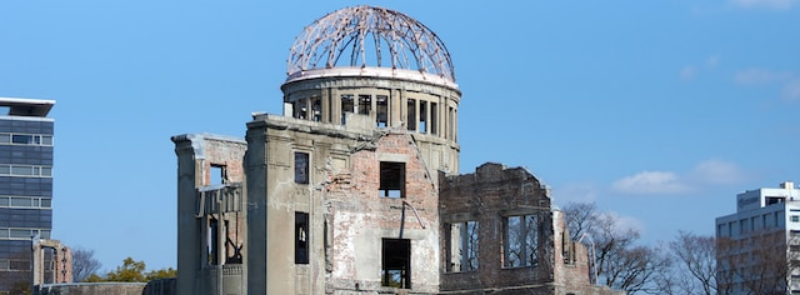
When It Occurs
Every August 6th
Timeline
Days Passed (931)
# Hashtags
#HiroshimaDay #AtomicBombing
August 6th marks Hiroshima Day, a solemn occasion dedicated to remembering the atomic bombing of Hiroshima, Japan, in 1945, concluding World War II. The devastating bombings claimed the lives of over 200,000 individuals within seconds and left thousands more injured.
Seventy years ago this week, the United States dropped an atomic bomb on Hiroshima, resulting in the tragic loss of over 140,000 lives—surpassing any other single event during World War II. The bombing obliterated a significant portion of the city, including a school where more than 80% of the children who perished were between 6 and 11 years old.
Background and History
-
Atomic Bombing: On August 6, 1945, during the final stages of World War II, the United States dropped an atomic bomb named "Little Boy" on the city of Hiroshima, Japan. The bombing resulted in widespread destruction, immediate deaths, and long-term health effects due to radiation exposure.
-
Impact: The bombing of Hiroshima killed an estimated 70,000 people instantly, with tens of thousands more dying later from injuries and radiation sickness. The city was largely destroyed, and the effects of radiation continued to impact survivors for decades.
Commemoration and Observance
-
Purpose: Hiroshima Day serves as a solemn reminder of the horrors of nuclear warfare and the devastating consequences of atomic bombings on civilian populations.
-
Activities: Observances typically include memorial ceremonies, peace marches, candlelight vigils, art exhibitions, and educational events focused on nuclear disarmament, peace advocacy, and the prevention of future nuclear conflicts.
-
Messages of Peace: Participants often use Hiroshima Day to call for global peace, nuclear non-proliferation, and disarmament, emphasizing the need for diplomatic solutions to international conflicts.
Hiroshima Peace Memorial Ceremony
-
Annual Ceremony: The Hiroshima Peace Memorial Ceremony is held at the Hiroshima Peace Memorial Park on August 6th. It includes speeches, prayers, the ringing of the Peace Bell, and a minute of silence at 8:15 AM, the exact time when the atomic bomb exploded over Hiroshima.
-
Symbolism: The Peace Memorial Park, featuring the iconic Genbaku Dome (Atomic Bomb Dome), serves as a symbol of remembrance and a commitment to peace, urging future generations to strive for a world free from nuclear weapons.
Global Significance
-
Global Observance: Hiroshima Day is observed worldwide by peace organizations, anti-nuclear groups, governments, and individuals who advocate for nuclear disarmament and promote peaceful solutions to international conflicts.
-
Education and Awareness: Through educational initiatives and public events, Hiroshima Day raises awareness about the humanitarian consequences of nuclear weapons and encourages dialogue on nuclear policy and global security.
How You Can Participate
-
Attend Events: Participate in local Hiroshima Day events, memorials, or peace marches organized in your community or region.
-
Educate Yourself: Learn about the history of Hiroshima and the impact of nuclear weapons on society, and share this knowledge with others to promote awareness and understanding.
-
Support Peace Initiatives: Advocate for policies that promote peace, disarmament, and international cooperation to prevent nuclear proliferation and ensure global security.
Conclusion
Hiroshima Day stands as a poignant reminder of the catastrophic consequences of nuclear warfare and the enduring quest for peace in a world threatened by nuclear weapons. By honoring the memory of those affected by the atomic bombings and advocating for a nuclear-free future, Hiroshima Day encourages reflection, solidarity, and collective action towards building a more peaceful and secure world for all.


